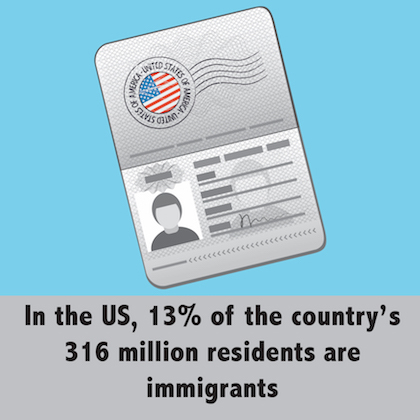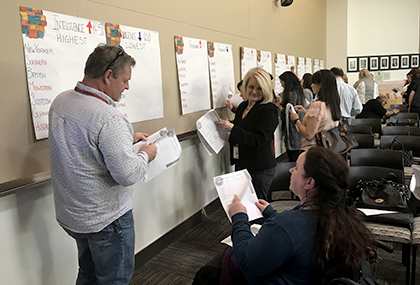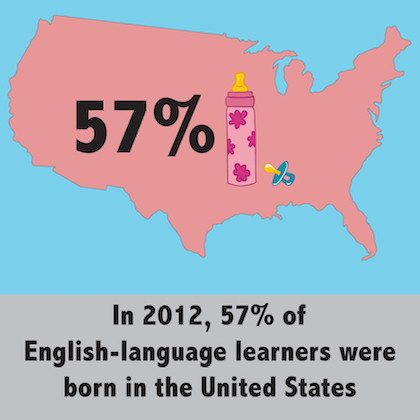Everyone Has an Accent (Yup, Even You)
/Say the word crayon. Now have your coworker say it. Do you both say it the same? Maybe one of you says it cray-ahn and the other says it cray-awn or just cran. And if you speak a different language at home, it might be none of these!
 The point here is – everyone has an accent. Yes, even you, English-as-a-first-language speakers. A recent workshop sponsored by the Diversity & Inclusion and Customer Experience initiative teams explored how people can form assumptions about others based on their accents. Employees learned strategies to make sure they give positive experiences to customers who might speak differently.
The point here is – everyone has an accent. Yes, even you, English-as-a-first-language speakers. A recent workshop sponsored by the Diversity & Inclusion and Customer Experience initiative teams explored how people can form assumptions about others based on their accents. Employees learned strategies to make sure they give positive experiences to customers who might speak differently.

“Events like this help us reach our goals to be more inclusive and culturally competent,” said Virginia Exner, Senior Human Resources Analyst who led the workshop.
Exner said the workshop brings awareness and attention to challenging topics and creates thought-provoking environments where employees are encouraged to engage in activities and discussion that help them better understand both their fellow employees and those they serve.
“I think it’s a great starting point,” said Keisha Clark, who works for HHSA and is current president of the African American Association of County Employees (AAACE) employee resource group. “One of the highlights for me is seeing some of my coworkers and their thoughts about it, but also then checking my bias about judging them about their bias.”
 Diversity and Inclusion champions work on an accent exercise at a workshop focused on accent biases.Clark, who admitted to formerly having her own misconceptions about people with accents different from hers, said she hoped that the attendees would take the information learned back to their departments and share with their colleagues to keep the conversation going.
Diversity and Inclusion champions work on an accent exercise at a workshop focused on accent biases.Clark, who admitted to formerly having her own misconceptions about people with accents different from hers, said she hoped that the attendees would take the information learned back to their departments and share with their colleagues to keep the conversation going.
“When you have rich discussion and things like this, you want more time to interact and talk,” she said. “It gets you thinking a little more.”
Exner said based on feedback from the participants, the workshop was successful. She said one employee who speaks English as a second language was particularly grateful for the experience.
“The activities challenged the audience to look at ways languages and accents can potentially influence our views and the service we provide to our customers,” Exner said. “If success is measured in opening minds and increasing our empathy for others, then I would say the workshop was very successful.”
Things You Can Do to Overcome Accent Biases
- Practice Acceptance
- Be Respectful
- Listen
- Be Flexible
- Be Patient
- Be Empathetic
- Understand
- Have HEART
You can learn more about the County’s commitment to diversity and inclusion on InSite.